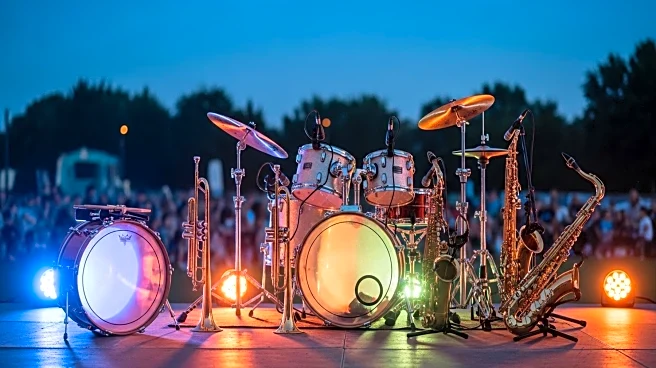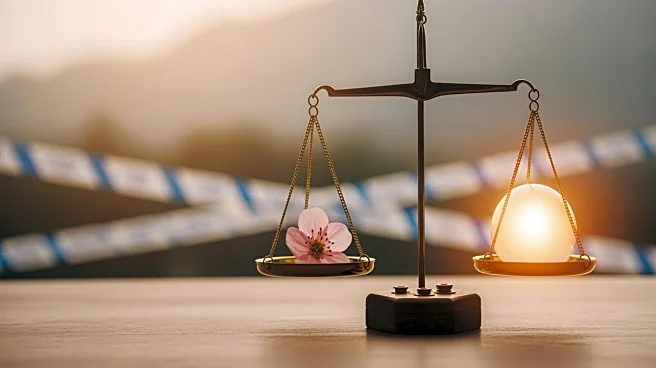What's Happening?
The Florida A&M University (FAMU) Marching 100 band performed at the US Open's HBCU Live event, marking a significant cultural celebration at the Billie Jean King Tennis Center in New York. This event, now in its fifth year, honors Historically Black Colleges and Universities (HBCUs) and their alumni. Dr. Shelby Chipman, the band director at FAMU, expressed excitement about the invitation, especially as it coincided with a tribute to FAMU alumna Althea Gibson. The event featured 30 band members, eight cheerleaders, and DJs, all contributing to a vibrant display of HBCU culture. Attendees, including FAMU alumni and other HBCU graduates, gathered to celebrate their heritage and enjoy the tennis matches, many experiencing the US Open for the first time.
Why It's Important?
The inclusion of HBCU culture at a major international event like the US Open highlights the growing recognition and appreciation of these institutions' contributions to American society. It provides a platform for HBCU alumni to showcase their rich cultural heritage and fosters a sense of community among attendees. This event also serves to introduce tennis to a broader audience, potentially increasing interest in the sport among HBCU communities. The celebration of Althea Gibson, a trailblazer in tennis and a FAMU alumna, underscores the historical impact of HBCUs in producing influential figures across various fields.
What's Next?
The success of HBCU Live at the US Open may encourage similar events at other major sporting venues, further integrating HBCU culture into mainstream American sports and entertainment. This could lead to increased visibility and support for HBCUs, potentially resulting in more opportunities for collaboration and sponsorships. Additionally, the positive reception of the event might inspire other HBCUs to participate in future editions, expanding the reach and impact of this cultural celebration.
Beyond the Headlines
The event also raises awareness about the historical and ongoing contributions of HBCUs to American culture and education. It highlights the importance of preserving and promoting the unique traditions and experiences of these institutions. As more people become aware of HBCU culture through such events, there may be increased advocacy for policies that support these schools and their students.









